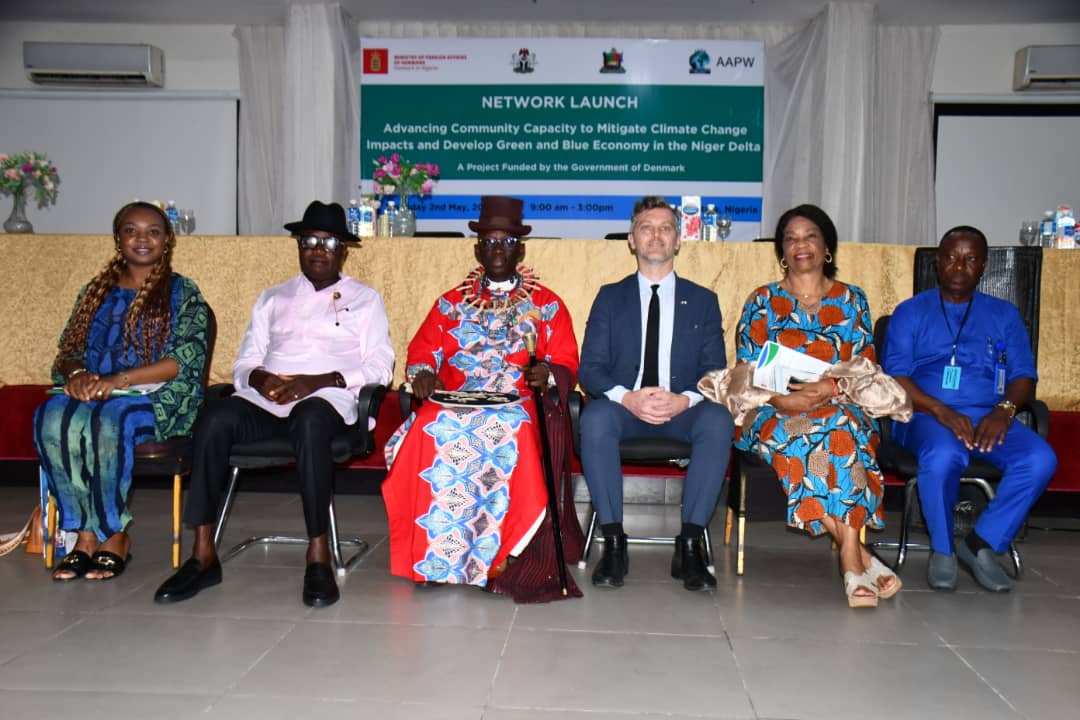The Government of Denmark, in collaboration with Academic Associates PeaceWorks (AAPW), has taken climate change awareness to rural communities in Bayelsa State through the project Advancing Community Capacity to Mitigate Climate Change Impacts and Develop Green and Blue Economy in the Niger Delta. The two-year project is being implemented in two communities that are highly affected by climate change, environmental degradation, and piracy in the state.
During a network launch event held at Golden Tulip Resort in Onopa, Yenagoa, participants shared experiences of climate change impacts on their livelihoods and discussed initiatives for sustainable environmental development.
Speaking at the event, Mr Sune Krogstrup, Denmark’s Ambassador to Nigeria, highlighted the importance of engaging local communities in addressing climate change challenges.
According to him, “Today, we’ve heard many stories from affected communities, which is why we’re partnering with AAPW to combat this issue.”
“We are optimistic that our efforts will benefit residents and create economic opportunities,” Krogstrup added.
“We hope for the support of other international partners and the Bayelsa State Government to ensure a lasting impact.”
Also speaking, the Bayelsa State Governor Douye Diri represented by the Secretary to State Government, Prof. Nimibofa Ayawei expressed the government’s commitment to collaborate on the project. He urged the project coordinators to broaden their scope beyond the pilot communities to ensure more communities can benefit from it.
Nkoyo Toyo, the Acting Executive Director of AAPW, reiterated the growing concern about climate change, particularly its impact on rural areas of the Niger Delta.
The project, led by Academic Associates PeaceWorks (AAPW) and supported by the Embassy of Denmark in Nigeria aims to target four communities suffering the adverse effects of climate change and environmental degradation across Bayelsa and Delta states. It will also promote sustainable practices in marine and terrestrial environments, emphasizing conservation, resource management, and development of communities in these areas.




